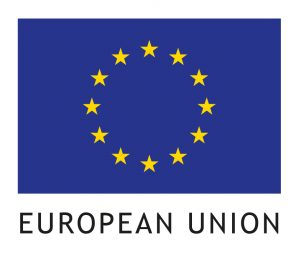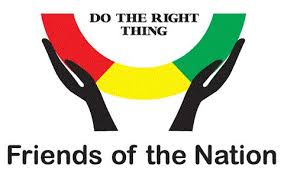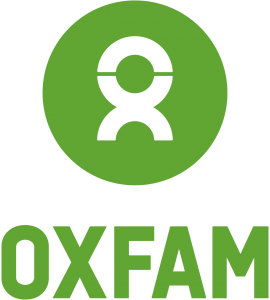Far Ban Bo
Home || capacity development||Far Ban Bo
Far Ban Bo Project (FBB) “Improving fisheries liveluihoods
The Action, Far Ban Bo (meaning ‘protecting the fishing livelihoods’ in fante), was a 4-year (January 2017 to December 2020) fisheries governance project funded by European Union and implemented jointly by a consortium consisting of CARE Denmark, Friends of the Nation (FoN) and Oxfam.
Based on the rich experiences of the consortium members in the fisheries and natural resource management sector and drawing on their comparative advantages; the project design was based on a thorough analysis of global frameworks, national sector policies, current initiatives in the sector and how they impacted on the sector, and in particular local fisheries economy.
Far Ban Bo project therefore targeted the need to address challenges of overfishing and unsustainable fishing practices also known as Illegal, Unreported and Unregulated Fishing (IUU), weak capacity for monitoring and enforcing relevant laws, and lack of secure tenure rights and grievances mechanisms in Ghana’s fisheries.
The project was implemented in 30 Districts in the four coastal Regions of Ghana namely; Western, Central, Greater Accra and Volta Regions. Specific project pilots were implemented in 4 coastal communities namely Dixcove, Anomabo, James Town and Keta and one inland community namely Kpando-Torkor.
Objective:
To contribute to sustainable fisheries resources management to improve food security and nutrition and livelihoods of smallholder fishers and other users of fishery resources.
Specific objective:
Smallholder fishers and processers benefit from equitable and sustainable rights-based fisheries resources management.
Expected Results:
- Empowered Smallholder Fishery Associations take Active Part in Fisheries Governance.
- Effective illegal, unreported, and unregulated (IUU) Monitoring and Grievance Mechanisms Piloted; and
- Social and Economic Safeguards Contribute to Improving Livelihoods and Nutritional Status of Smallholder Fishers and other Users of Fishery Resources.
Results:
Overall, the project
1. Established Over 30 Village Savings and Loans Associations [VSLA) in project communities.
2. Contributed to building enabling conditions for sustainable fisheries resources management and is expected to lead to improve food security and nutrition and livelihoods of smallholder fishers and other users of fishery resources.
3. Supported smallholder fishers and processers and provided the enabling environment for them to participate in equitable and sustainable rights-based fisheries resources management.
4. Promoted more representative, inclusive, transparent, and accountable fisher association that have the capacity to effectively respond to the demands and interests of their constituents.
5. Evidence-based and collaborative advocacy approach led to informed policymaking and implementation of fishery policies, specifically related to co-management and socio-economic safeguards, beyond the lifespan of the Action.
6. Catalyzed a stronger and more diversified civil society that is poised to provide an accountability safeguard to ensure that policy implementation is monitored, and that sustainable and equitable fishery governance remain on the agenda.
7. Improved IUU monitoring and compliance and this is expected to lead to improved environmental sustainability if government become supportive in enforcement of fisheries laws to decrease use of illegal fishing equipment and methods, that will lead to replenished marine stocks.
Achievements:
- Built concencus among fisheries stakeholders for the 2018 closed season.
- Over the lifetime of the project, fisher-folks have been empowered and given the opportunity to contribute and participate meaningfully in fisheries governance.
- Eleven (11) institutions and Fisher associations totaling 5716 persons directly benefited from the training programs organized by FBB project. The institutions included Ghana National Canoe Fishermen Council (GNCFC), National Fish Processors and Traders Association (NAFPTA), National Fishers Association of Ghana (NAFAG), Ghana Industrial Trawlers Association (GITA), National Inland Canoe Fishers Council, CSOs Fisheries Alliance and the Ghana Inshore Fishermen Association (GIFA), Marine Police, Navy and Fisheries Commission and Fisheries enforcement Unit (FEU).
- The project formed Five (5) IUU Community Monitoring groups-CMGs) and strengthened their capacity for IUU monitoring and grievance reporting and handling in collaboration with smallholder fishery groups and associations and government stakeholders.
- The project adopted an ICT based evidence gathering software called DASE designed by EJF (Far Dwuma Nkodo) that enabled smallholder fishers to report IUU practices (including illegal trawling, Illegal Transshipment, dumping of fish, etc.), the fishers used the app to capture and document accurate description of the vessels (e.g. the colour, name, registration numbers) and other adequate information on the location.
- The project distributed 25 phones and 200 smart phone protectors to fishers to aid the capturing of IUU evidence using DASE app ICT tool. The Dase ICT tool was subscribed by 145 fishers and stakeholders from the FBB project zone.
- The project institutionalized multi-stakeholder platform on IUU at two fisheries enforcement command centers (i.e. Eastern Command-Tema and Western Command-Takoradi) that created platforms for fishery associations and the community monitoring groups (CMGs) to raise issues and dialogue with the enforcement units and fishery stakeholders from the government and the private sector.
- The project supported Five (5) fish landing sites securing to improve rights tenure and sustainable use of fisheries resources, in line with the VGGT. A total of 6452 men and women small holder fishers are directing benefiting for the 5 secured landing sites work by the FBB project with the following break-down: (Abuesi-2688, Anomabo-2133, Abutiakope-689, Whuti-500 and Kedzikope-442.)
- The project mapped about 46.322 hectares (114.486 acres) of the five (5) fishing communities fish landing sites. This has contributed to securing of livelihoods for small-holder fishers and their dependent
- The project developed 4 policy briefs that are used for advocacy and policy dialogues with stakeholders. The project media activities included the training 41 Media personnel and frequent engagement with news editors. This contributed to strengthened Media capacity in reporting on fishery issues in both the print and electronic and has also contributed to disseminating reliable information and highlighting the challenges to sustainable fisheries governance in Ghana to a wider audience through the media.
- Visibility and awareness of the Project and the EU support were raised through the production of over Produced 8000 communication materials on IUU, VGGT, posters, etc the communication products have been used to educate and sensitise the 75 CMG members, 1145 VSLA group members, small holder fishers assoc. which has increased the presence of the project and the EU in communities.
- FBB promoted the visibility of the project and awareness of the EU funding support through visibility actions via installation of 5 project billboards and 20 signages in Accra, Takoradi, Keta, Shama, Ahanta west, Kpando, Anomabo and Sekondi
Lessons learnt
- Working closely with small-scale fisher associations through a participatory approach enhances advocacy against IUU fishing such as “Saiko”.
- In curbing IUU, continuous advocacy and strong political will to sanction offenders is very crucial.
- Media engagements in fisheries governance, with the local FM stations is critical in propagating policies and laws against illegal activities within fishing communities.
- The use of local level stakeholders and their associations to demand improved and equitable services delivery and integrated policies was innovative. This enhanced community participation and sustainability of the FBB project.
- VSLA had also demonstrated its social mobilization capacity among the fishing population by creating the required space to provide complementary livelihood enhancing modules. The working constitution guiding their operations will enhance the sustainability of this activity.
- The community score card approach is an efficient means of empowering fishers to actively participate in fisheries governance.
Read the final project report here
Partners




